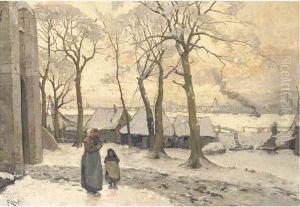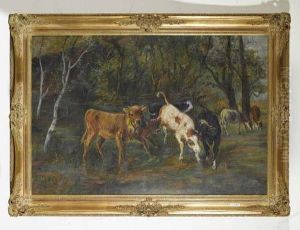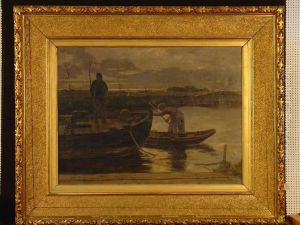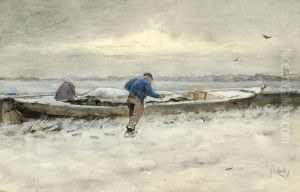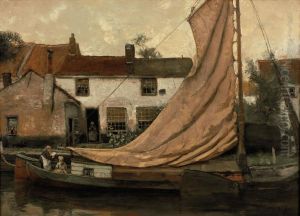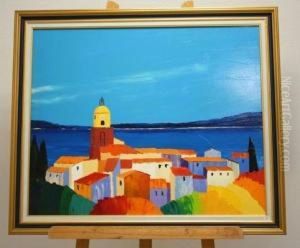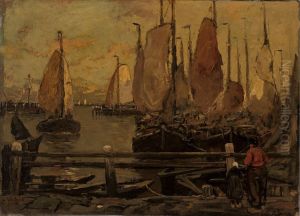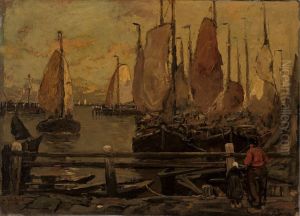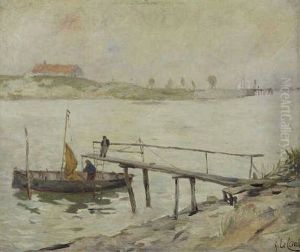Adolf Le Comte Paintings
Adolf Le Comte was a Dutch artist known for his painting, ceramics, and teaching. Born in Delft, Netherlands, in 1850, he grew up in a period marked by the revival of interest in Dutch cultural heritage and the decorative arts. Le Comte received his artistic training at the Royal Academy of Art in The Hague, where he was deeply influenced by the Dutch artistic traditions and the burgeoning Arts and Crafts movement.
Early in his career, Le Comte focused on painting, but he gradually expanded his interests to include the applied arts. He became particularly well-known for his work in ceramics, an art form deeply rooted in Delft's history. In 1877, he moved to the United States, where he would go on to have a significant impact on the development of ceramic art and education. Settling in New Jersey, Le Comte taught at the Newark School of Industrial and Fine Arts, which later became part of the New Jersey Institute of Technology.
Throughout his life, Le Comte was an active participant in the artistic community. He was a member of various art societies and exhibited his work frequently. His endeavors were not limited to his own artistic production; he was also passionate about art education and played a pivotal role in shaping the curricula of art programs in the United States.
Adolf Le Comte's contribution to the Arts and Crafts movement and his dedication to the integration of art and industry were recognized during his lifetime, and his influence continued after his death in 1921. Through his teaching and his practice, he helped to bridge the gap between traditional Dutch art forms and the evolving American aesthetic of the late 19th and early 20th centuries.
